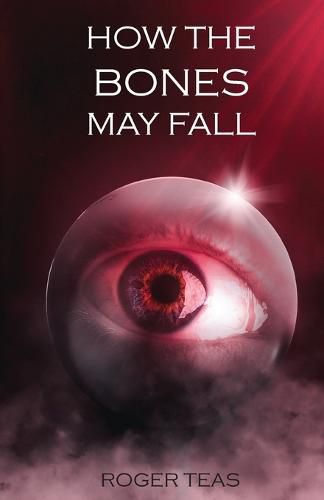Readings Newsletter
Become a Readings Member to make your shopping experience even easier.
Sign in or sign up for free!
You’re not far away from qualifying for FREE standard shipping within Australia
You’ve qualified for FREE standard shipping within Australia
The cart is loading…






This title is printed to order. This book may have been self-published. If so, we cannot guarantee the quality of the content. In the main most books will have gone through the editing process however some may not. We therefore suggest that you be aware of this before ordering this book. If in doubt check either the author or publisher’s details as we are unable to accept any returns unless they are faulty. Please contact us if you have any questions.
This book is a small compilation of poems during a brief period of time by Roger Teas. The book was written out of the prompts of his friends that his poetry was good, but also as an experiment to understand the workings of his own mind. After over a decade of study and meditation about various philosophies and religions, Roger Teas needed some sort of outlet to convey some of the abstract thoughts that those theories may produce. The writing of the poems, and the subsequent publishing of them, have become a tool to measure the structure of his psychology. The poems are not intended to be a masterpiece, or a conclusion, but actually only a beginning, if anything.The sidelight to the book is also to convey to the local and larger audience the other aspects of a personality that was lost in a media sensation of a horrible crime; one that would normally be deemed legally insane at the verdict, but is not in Alaska due to obscure insanity laws, leaving Roger Teas, who was named Jason Abbott, to serve a virtual life sentence for a crime he did not intend to commit. In his eyes, the harshest judgement was being portrayed as something he’s not, and these poems give him an opportunity to convey the other sides of himself, even if they are not perfect or the most accepted. In a day and age of liberty and expression, it is the freedom to be as the personality was created that has the most value to his eyes. The title How the Bones May Fall is an allusion to exactly that: there is no re-creating a voodoo divination, it must be read as it is. This book is a brief glimpse into Roger Teas and his mind, as is.
$9.00 standard shipping within Australia
FREE standard shipping within Australia for orders over $100.00
Express & International shipping calculated at checkout
This title is printed to order. This book may have been self-published. If so, we cannot guarantee the quality of the content. In the main most books will have gone through the editing process however some may not. We therefore suggest that you be aware of this before ordering this book. If in doubt check either the author or publisher’s details as we are unable to accept any returns unless they are faulty. Please contact us if you have any questions.
This book is a small compilation of poems during a brief period of time by Roger Teas. The book was written out of the prompts of his friends that his poetry was good, but also as an experiment to understand the workings of his own mind. After over a decade of study and meditation about various philosophies and religions, Roger Teas needed some sort of outlet to convey some of the abstract thoughts that those theories may produce. The writing of the poems, and the subsequent publishing of them, have become a tool to measure the structure of his psychology. The poems are not intended to be a masterpiece, or a conclusion, but actually only a beginning, if anything.The sidelight to the book is also to convey to the local and larger audience the other aspects of a personality that was lost in a media sensation of a horrible crime; one that would normally be deemed legally insane at the verdict, but is not in Alaska due to obscure insanity laws, leaving Roger Teas, who was named Jason Abbott, to serve a virtual life sentence for a crime he did not intend to commit. In his eyes, the harshest judgement was being portrayed as something he’s not, and these poems give him an opportunity to convey the other sides of himself, even if they are not perfect or the most accepted. In a day and age of liberty and expression, it is the freedom to be as the personality was created that has the most value to his eyes. The title How the Bones May Fall is an allusion to exactly that: there is no re-creating a voodoo divination, it must be read as it is. This book is a brief glimpse into Roger Teas and his mind, as is.